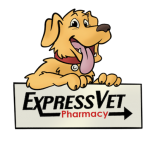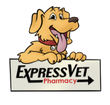Recently my little guy, Odin, started showing a mild persistent cough, a reluctance to go on long walks, decreased appetite, and weight loss. I became worried about his situation and took him to the vet. They did a series of tests and found that he has heartworm disease. Here is what you need to know about heartworm disease in dogs.
What is heartworm disease?
Heartworm disease is a serious and potentially fatal condition caused by parasitic worms called heartworms. These worms live in the heart and lungs of infected animals and can grow up to 12 inches long. They are transmitted through the bites of mosquitoes.
How does heartworm disease affect dogs?
Heartworm disease can cause a wide range of symptoms in dogs, from mild to severe. The most common symptoms include coughing, exercise intolerance, and weight loss. In more severe cases, heartworm disease can cause heart failure and death.
How is heartworm treated?
The veterinarian recommended Doxycycline Compounded Oral Liquid. Doxycycline is a tetracycline antibiotic prescription medication used to treat infections caused by several different microorganisms in dogs, cats, and small animals. The drug is often prescribed to dogs for heartworm disease, Lyme disease, anaplasma (tick-borne), periodontal disease (teeth and gum) Toxoplasma, and Neorickettsia helminthoeca (salmon poisoning). Doxycycline is a broad-spectrum antibiotic, which means it can fight multiple types of bacteria such as E.coli, urinary tract infections, and chlamydia.
How is Doxycycline Compounded Oral Liquid administered?
Doxycycline compounded oral liquid is given by mouth in liquid form once daily preferably with food since this drug may upset the stomach. It is best to give with small amounts of food that do not contain dairy or iron products. This medication should take effect in about 1 or 2 hours, and noticeable effects could take up to a few days.
Do not give doxycycline with calcium supplements, multivitamins, antacids, or laxatives for 2 hours before or after dosing. These products can reduce the effectiveness of the drug.
The veterinarian may recommend a different dosage depending on the severity of the infection.
What are the side effects of Doxycycline Compounded Oral Liquid?
The most common side effects include vomiting, diarrhea, and loss of appetite. Other side effects may include allergic reactions such as hives, difficulty breathing, and swelling of the face, lips, tongue, or throat. If you see any of these signs, stop giving the medication and contact your veterinarian immediately.
I hope you find this information helpful. Odin has been doing better since he started Doxycycline Compounded Oral Liquid, and I am hopeful that he will make a full recovery. If you were wondering where to get this compounded medication, Express Vet pharmacy compound is your best choice. They can even compound it for you in a flavor that appeals to your pet's taste buds, such as beef, chicken, or tuna. Check them out today!







